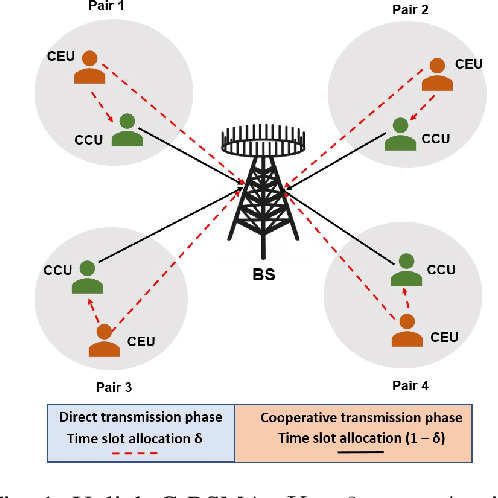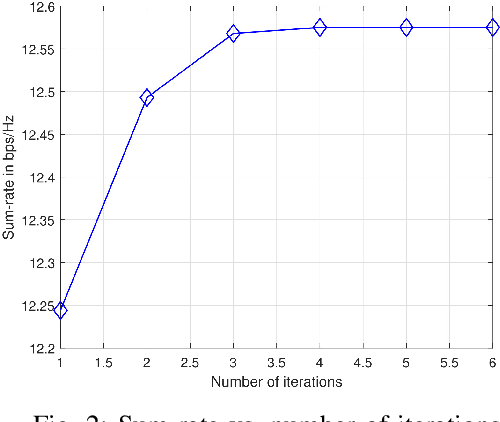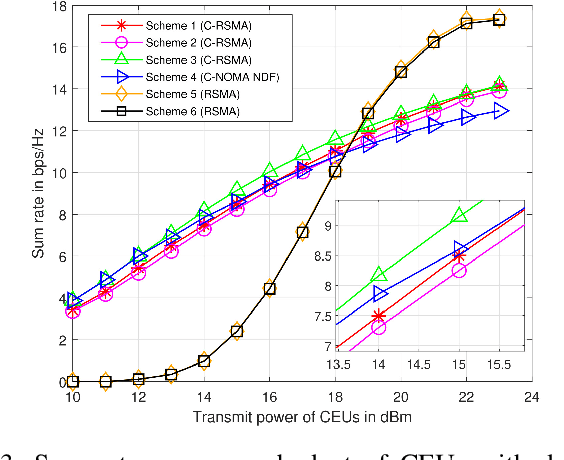Optimizing Multi-User Uplink Cooperative Rate-Splitting Multiple Access: Efficient User Pairing and Resource Allocation
Paper and Code
Sep 03, 2024



This paper investigates joint user pairing, power and time slot duration allocation in the uplink multiple-input single-output (MISO) multi-user cooperative rate-splitting multiple access (C-RSMA) networks in half-duplex (HD) mode. We assume two types of users: cell-center users (CCU) and cell-edge users (CEU); first, we propose a user pairing scheme utilizing a semi-orthogonal user selection (SUS) and a matching-game (MG)-based approach where the SUS algorithm is used to select CCU in each pair which assists in reducing inter-pair interference (IPI). Afterward, the CEU in each pair is selected by considering the highest channel gain between CCU and CEU. After pairing is performed, the communication takes place in two phases: in the first phase, in a given pair, CEUs broadcast their signal, which is received by the base station (BS) and CCUs. In the second phase, in a given pair, the CCU decodes the signal from its paired CEU, superimposes its own signal, and transmits it to the BS. We formulate a joint optimization problem in order to maximize the sum rate subject to the constraints of the power budget of the user equipment (UE) and Quality of Service (QoS) requirements at each UE. Since the formulated optimization problem is non-convex, we adopt a bi-level optimization to make the problem tractable. We decompose the original problem into two sub-problems: the user pairing sub-problem and the resource allocation sub-problem where user pairing sub-problem is independent of resource allocation sub-problem and once pairs are identified, resource allocation sub-problem is solved for a given pair. Resource allocation sub-problem is solved by invoking a successive convex approximation (SCA)-based approach. Simulation results demonstrate that the proposed SUS-MG-based algorithm with SCA outperforms other conventional schemes.
 Add to Chrome
Add to Chrome Add to Firefox
Add to Firefox Add to Edge
Add to Edge